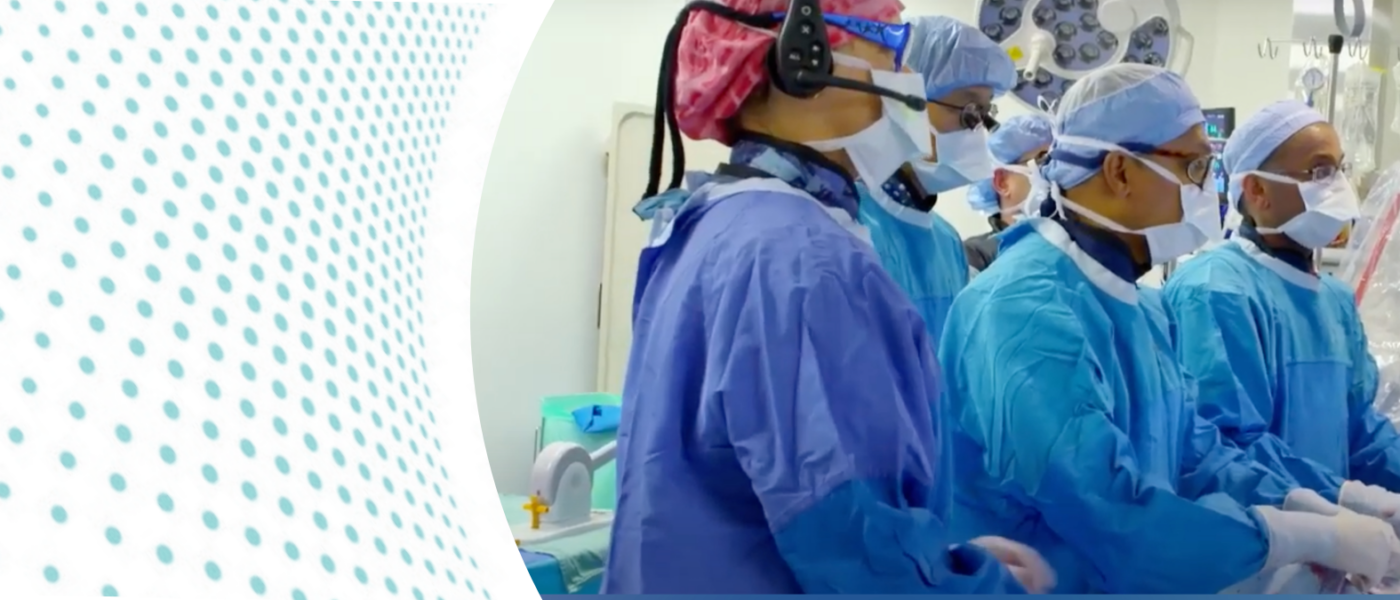TAVR CT STRUCTURAL
Fellowship Program at McMaster
Welcome to the TAVR CT Structural Fellowship Program at McMaster University. The goal of our unique multidisciplinary procedural training program is to produce fellows with the skills, knowledge, and experience to become outstanding operators.Welcome
The Transcatheter Aortic Valve Program at Hamilton Health Sciences is a multidisciplinary program including interventional cardiology, cardiac surgery, vascular surgery, cardiac CT imaging and echocardiography.
The program assesses over 1200 new patients with aortic stenosis each year, performs 1000 TAVR CT examinations, and implants over 450 TAVR annually. The service has been growing rapidly and is one of the largest TAVR programs in Canada.
All patients considered for aortic valve intervention are seen in a regional integrated aortic valve clinic with attending physicians from interventional cardiology and cardiac surgery. The program features full integration of cardiac CT imaging with TAVR. All TAVR planning CTs are interpreted and reported by the implanting physician team on dedicated image processing software located in the cath lab and all TAVR fellows obtain advanced CT interpretation skills as a core component of their fellowship. The primary procedural strategy is percutaneous transfemoral access with conscious sedation and local anesthesia. The preferred alternate access is trans-carotid, however, axillary and direct aortic implants are also performed. Balloon expandable devices are used in the vast majority of patients, however, exposure to all major valve platforms is provided.
Goals of Training
The TAVR CT Structural Fellowship at HHS teaches a unique combination of knowledge and skills from multiple disciplines including interventional cardiology, cardiac surgery, and radiology. Upon completion of training, the fellow is expected to be able to function as an independent TAVR operator who will perform procedures in the context of a multidisciplinary heart team.
Certification Outcome
The successful completion of the fellowship will grant a Fellowship McMaster Certification.
Entry Requirements
Training is offered to interventional cardiologists and cardiac surgeons with strong clinical and technical skills. Interventional cardiology candidates should have successfully completed a core interventional fellowship and possess the ability to independently perform diagnostic angiography and percutaneous coronary intervention. Cardiac surgical candidates should have successfully completed core cardiac surgical residency training with an expressed interest or advanced competence in aortic valve surgery.
Start Dates & Funding
Available start dates for fellows are January 1, July 1, and Sept 1. Interviews are conducted 15 months in advanced of the anticipated start date and applications must be submitted prior to this date to be considered. Funding is available on a competitive basis. Alternatively, fellows may be funded by their home university. Successful applicants are provided with letters of support for grant applications upon request.
Admissions:
July 1 and September 1 start | Deadline: May 1 of the year prior. Selections will be made by July 1.
January 1 start | Deadline: October 31 of the year prior. Selections will be made by December 31.
Curriculum Highlights
Fellowship Structure and Expectations
The fellowship program is 12 months in duration. The fellow’s weekly schedule will vary
week by week but will typically include:
- 1 day – intake clinic (virtual)
- 1 to 2 days – TAVR procedure (5-6 cases per day)
- 1 to 2 days – Cardiac CT image acquisition and reporting (>20 CTs per day)
- 1-day research time or non TAVR procedure day to maintain discipline-specific
skills (Cath/PCI for Interventional cardiology, Cardiac ORs for cardiac surgery)
Fellows are responsible for post TAVR discharges and evaluation of inpatient
consultation.
Fellows are expected to contribute to weekly TAVR teaching rounds and to produce one
first author publication during their training. Fellows are expected to maintain a TAVR outcomes database that tracks clinical and procedural characteristics and outcomes. This is an important source for quality improvement initiatives and research.
Training Requirements
Upon completion of the TAVR CT structural fellowship, the fellow will have fulfilled the following training requirements:
- Involvement in clinical and imaging evaluation of >300 potential TAVR
candidates - Participate as an operator in at least 200 TAVI procedures. Procedural responsibility will be graduated with the goal of having the fellow obtain access for the delivery sheath and/or deliver the valve in 100 procedures
- A minimum of Level 2 cardiac CT training. Level 3 cardiac CT training will also be possible depending on trainee interests.
Supervision & Feedback
The fellow assessment will involve a combination of direct workplace-based assessment & in-training evaluation of performance in the cath lab, CT, clinic, and academic work. A case log book must be submitted, reviewed and signed off by the program committee for fellowship completion.

